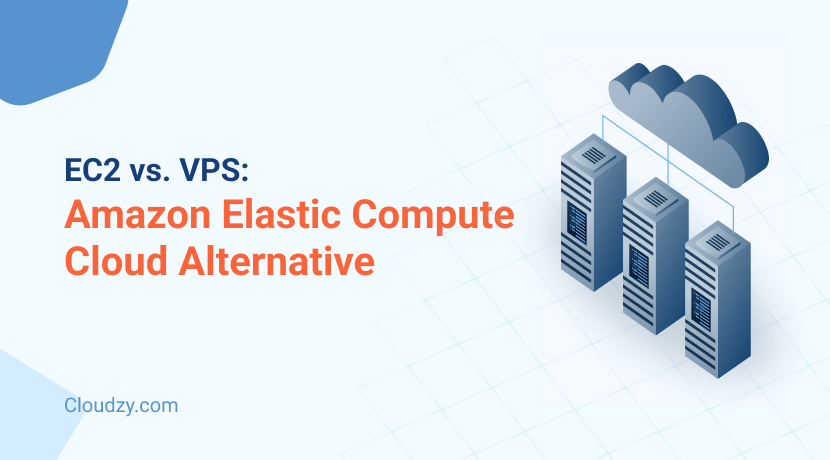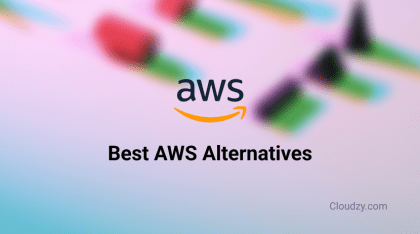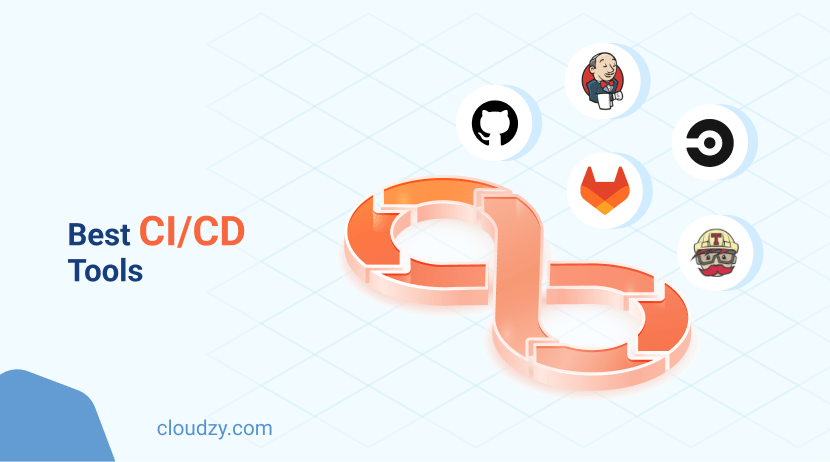There aren’t many bigger names in the cloud services industry than Amazon AWS. AWS is known for a wide variety of services, ranging from basic cloud computing and storage services to ML (Machine Learning) and more, totaling over 240 cloud products.
One of its most popular services is Amazon’s EC2, a cloud-based service offering scalable computing capacity that is the closest AWS product to a traditional VPS. In this article, I’ll be going into detail about the difference between EC2 vs. VPS, which is best for whom, and the best alternatives to Amazon EC2.
EC2 vs. VPS: What Do They Offer?
Amazon EC2 is pretty much the same as the average VPS in terms of functionality; however, factors like price, scalability, flexibility, and resource allocation set them apart. That said, let’s get into what EC2 and VPS are and how they differ.
What Is Amazon EC2?
Amazon’s EC2 service basically provides users access to run virtual servers called “instances” in the cloud. Most notably, EC2 features high versatility, flexible resources, and, of course, deep integration with other AWS services. Additionally, with EC2, you have extensive control over networking, storage, and computing resources.
You also have a broad range of functionalities like Auto Scaling and Elastic Load Balancing. Lastly, Amazon’s EC2 employs a pay-as-you-go (PAYG) pricing model that ensures you only pay for what you use.
EC2 Use Cases
Considering the pricing, complexity, and capabilities of AWS EC2, it’s evident that employing it for small to medium-sized businesses is not only overkill but a waste of money. Realistically, you should only go for EC2 if you need to run data-intensive tasks like machine learning (ML), big data analytics, real-time data processing, and fluctuating, high-traffic applications.
Not only is this because EC2’s high rates are not worth it when most of its capabilities are not useful to non-enterprise cases, but also because setting up and managing AWS services requires technical expertise and an accounting team to make sure you don’t pay extra for services you don’t need.
What Is a VPS?
VPS, which stands for virtual private server, is a mini server of sorts that provides a certain amount of resources like CPU, RAM, and storage. The allocated resources are separate from the rest of the resources of the server which the VPS is a small part of. A VPS also provides root access and the ability to install custom software.
VPS Use Cases
A VPS can be a massively useful tool for small to medium-sized businesses and websites, as well as personal use. With prices as low as a couple of dollars a month, you get instant access to a robust set of resources that can be used for a variety of applications ranging from basic, personal uses like a VPN or game server hosting to web hosting for business websites and blogs as well as web deployment for building, testing, and deploying applications.
Lastly, VPS services are much more suitable for startups and individuals with limited budgets due to predictable and affordable pricing and ease of use. We offer some of the lowest rates in the VPS industry with features including over 15 locations worldwide, dedicated internet connections reaching up to 10 Gbps, enterprise NVMe SSD storage, powerful 3.23 GHz turbo-speed AMD EPYC processors, and 99.95% uptime. Check out our VPS pricing for more details.
EC2 vs. VPS: How Do They Compare?
Amazon EC2 is an advanced version of a VPS, so we’re comparing AWS EC2 pricing and features against other VPS providers. Let’s see how they stack up.
Pricing: EC2 vs. VPS
When comparing EC2 vs VPS, pricing is a key factor. Generally, AWS services, including EC2, tend to be more expensive than traditional VPS providers. EC2 uses a pay-as-you-go (PAYG) pricing model, which can be cost-effective depending on the specific use case. However, AWS’s pricing structure is often seen as ambiguous and complex, leading to unexpected charges for some users. AWS provides a pricing calculator to help, but many still find it confusing. In contrast, VPS providers usually offer simpler and more affordable pricing without sacrificing performance or resources.
Scalability and Resource Allocation: EC2 vs. VPS
For businesses with fast-growing cloud needs, scalability is crucial. Amazon EC2 excels in this area, offering elasticity and auto-scaling, allowing resources to adjust automatically without user intervention or downtime. This ensures that during periods of high traffic, services remain operational without any manual adjustments. On the other hand, most VPS services lack auto-scaling, meaning users must manually add resources or switch plans. This typically results in downtime as services need to be stopped, plans modified, and the VPS restarted.
Control and Flexibility: EC2 vs. VPS
EC2 stands out for its extensive control and flexibility. With over 245 data center locations worldwide, it provides far more geographic options than most VPS providers. EC2 offers full root access, customizable network configurations through Amazon VPC (Virtual Private Cloud), and integration with other AWS services like S3, RDS, and Lambda. Some VPS providers, like Cloudzy, offer similar features, such as root access and the ability to install custom software, but overall, the level of customization remains limited compared to EC2.
Security: EC2 vs. VPS
Security features vary widely between VPS providers, but most offer basic protection like firewalls and DDoS protection, with a few offering backups and additional security measures. In comparison, EC2’s integration with services like VPC and IAM provides robust security features that meet various industry certifications, such as ISO 27001, PCI-DSS, HIPAA, and FedRAMP. This makes EC2 particularly suited for industries where compliance is essential, such as finance, healthcare, and government.
Before going further, I encourage you to read our broader list of AWS alternatives, especially if you’re a small team with cost concerns.
Best EC2 Alternatives
Since all your VPS needs can be covered with Cloudzy’s services, let’s talk about alternatives to AWS EC2, as you may require enterprise-grade services but don’t want to deal with the high prices and complexity of AWS. I’ve made a list of the best Amazon EC2 alternatives that are also cheaper than EC2.
Microsoft Azure: Best For Microsoft Integration
Not only is Microsoft Azure a direct Amazon EC2 competitor in terms of service quality and performance, but it also offers seamless integration with Microsoft services that you may already be using, like Windows Server and Active Directory, which itself includes Office 365, Microsoft 365, and Azure services.
- Platform Support: Azure supports both Windows and Linux, integrating deeply with SQL Server, .NET, and various Linux distributions like Ubuntu, CentOS, and Red Hat.
- Hybrid Cloud: Azure offers hybrid cloud solutions like Azure Stack for on-premises services and Azure Arc for extending Azure management across any infrastructure, including non-Azure environments.
- Compliance: Azure meets extensive compliance standards, including ISO/IEC 27001, SOC 1/2/3, PCI-DSS, HIPAA, and GDPR, ensuring security and regulatory compliance.
IBM Cloud Virtual Servers: Best for Security and AI-Driven Applications
Another great AWS EC2 alternative is IBM Cloud, especially for enterprises with sensitive data and AI and Machine Learning needs. Additionally, IBM Cloud offers dedicated hosts for enterprises that need exclusive access to physical servers for compliance or performance reasons.
- Security Features: IBM Cloud offers strong security as an EC2 alternative, with identity and access management (IAM), multi-factor authentication (MFA), role-based access controls (RBAC), and comprehensive encryption for data at rest and in transit. It also complies with key industry standards like ISO 27001, SOC 1/2/3, HIPAA, and GDPR.
- AI and Machine Learning: IBM’s Watson AI services provide advanced capabilities in natural language processing (NLP), image recognition, and predictive analytics, enabling businesses to build, train, and deploy machine learning models directly in the cloud.
- Flexible Pricing and Global Data Coverage: IBM Cloud offers various pricing models, including hourly, monthly, and pay-as-you-go options, with over 60 data centers globally to support diverse business needs.
Google Cloud Platform (GCP): Best for Kubernetes
Google Cloud is known for its strengths in data analytics, machine learning, and Kubernetes, making it a preferred choice for enterprises with a focus on big data and, especially, for those who use Kubernetes services extensively.
- AI and Machine Learning: GCP leads in AI and ML services with tools like TensorFlow and Google AI, which are integrated into its cloud platform.
- Global Network: GCP offers robust networking features and operates in 40 regions with 121 availability zones, providing strong support for globally distributed applications.
- Strong Kubernetes Support: As the original creator of Kubernetes, Google offers the Google Kubernetes Engine (GKE), one of the best-managed Kubernetes services available.
Oracle Cloud Infrastructure (OCI): Best for Oracle Integration
Similar to Microsoft Azure, if you already use Oracle databases and applications, then Oracle Cloud Infrastructure is a perfect AWS EC2 alternative for your enterprise cloud needs.
- Enterprise Applications: OCI is optimized for running Oracle’s suite of enterprise applications, including Oracle E-Business Suite and JD Edwards.
- High Performance: OCI offers bare metal instances, which provide high performance for demanding workloads such as databases and high-throughput applications.
- Integrated Security: Oracle Cloud includes built-in security features like data encryption, identity management, and compliance tools tailored for enterprise use.
Final Thoughts
VPS and EC2 may be similar; however, they are designed to handle different tasks and different workloads. That’s why you can’t really say one is better than the other when arguing AWS vs. VPS. The affordable prices and simplicity of traditional VPS services make it a better option for small to medium-sized businesses. In contrast, EC2’s high pricing and comprehensive services are much more suited to enterprises.
While there are many VPS providers available today, Cloudzy offers one of the best bang-for-the-buck deals, so if you’re ever in need of a VPS, check out our affordable services!
Want a high-performance Cloud VPS? Get yours today and only pay for what you use with Cloudzy!
Get Started HereFAQs
Is AWS EC2 the same as VPS?
Amazon’s EC2 and the traditional VPS may be very similar in function; however, they each have qualities and features that make them suitable for different use cases. Generally, VPS services are much simpler to set up and cost less, yet they lack the advanced control, customizability, and scalability that EC2 offers. This makes EC2 a perfect fit for enterprise-grade use cases, while a VPS is much more suited to small businesses and startups.
Which VPS provider offers the best rates and features?
Cloudzy provides over 15 data centers in three continents, a 99.95% uptime guarantee, and an intuitive website and control panel design. Furthermore, we offer dedicated internet connections reaching up to 10 Gbps, enterprise NVMe SSD storage, and powerful 3.23 GHz turbo-speed AMD EPYC processors, all offered at an affordable rate.
What are the best AWS EC2 alternatives?
For those who already employ Microsoft or Oracle services, Microsoft Azure and Oracle Cloud Infrastructure are the best. However, if you need top-notch security and AI and machine learning services, IBM Cloud is your best bet. Lastly, Google Cloud Platform (GCP) is the best EC2 alternative if you’re already using Kubernetes services.




